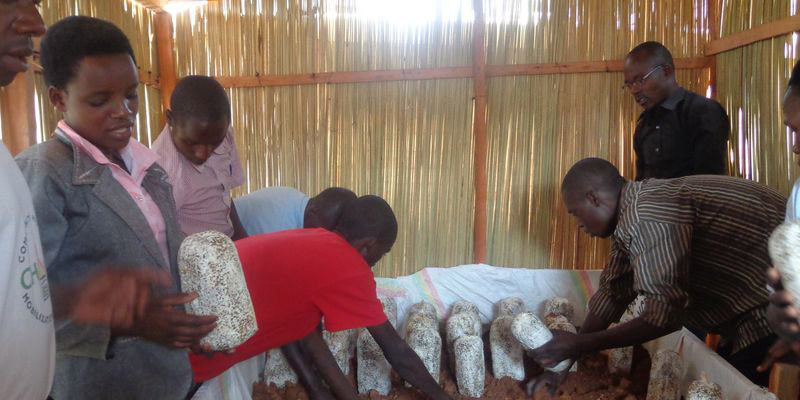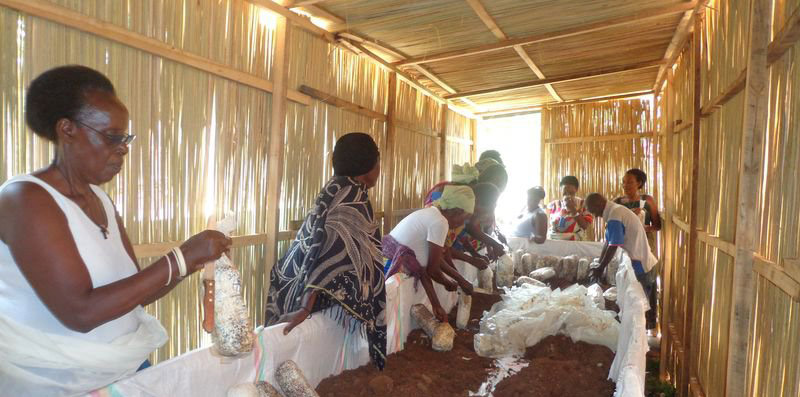We have worked hard to define the ideal growing parameters and business model for landless farmers to be able to profit from this crop. After years of experience in this field, our approach addresses the most common challenges – production, labor, and distribution – to make tree oyster farming a successful venture for everyone. With good quality inputs and a suitable growhouse, tree oysters are easy to grow by low-tech means, require neither much land nor good soil, and are ideally suited for cultivation by women.
training section

How the project works
We work in 7 north-western Districts, on a sector-by-sector basis. We partner with local healthcare workers, who have intimate, daily contact with families in rural Rwanda. They know their resident families’ living conditions and health challenges. By educating their constituents about the benefits of mushrooms in their diet, they carry forward this information into each household.

We teach our partner healthcare workers to grow mushrooms, through 12-week long intensive training courses at our campus in Musanze. The first wave of these trainings have been with healthcare workers from Kabilizi, Karwasa, Cyabaralika and Bucyinanyana (Musanze District) and Rwasa, Nyangwe, Buramba and Kidakama (Burera District).
The result is 3-fold: health care workers can understand and teach others how to successfully grow tree oysters; they learn to market this new produce in their communities; and they are best positioned to monitor health improvements of their constituents who add mushrooms to their diet.
